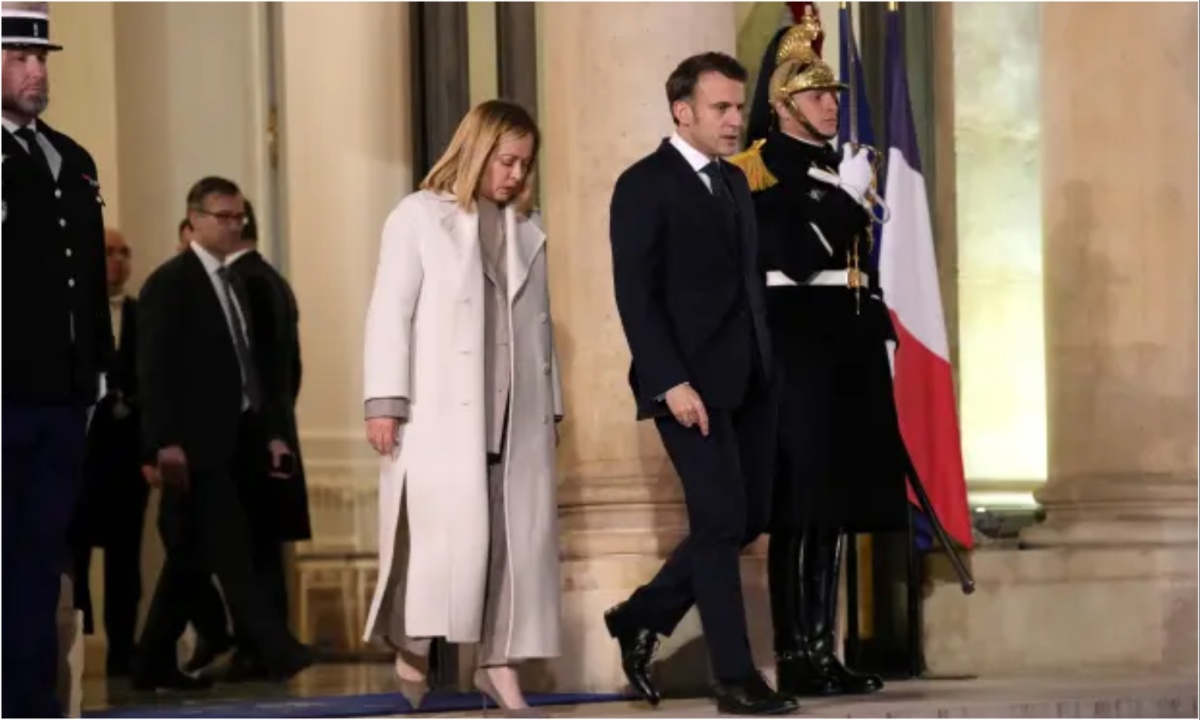French President Emmanuel Macron is striving to position himself as the leading voice on European security, particularly concerning Ukraine. By hosting a selective summit at the Élysée Palace, he signaled his intent to steer Europe toward greater strategic autonomy, especially as Germany’s Chancellor Olaf Scholz faces political uncertainty and the U.K. remains outside the EU.
France, as the EU’s only nuclear power, has the military credentials to support this vision. However, internal European divisions, resistance from Germany, and the unpredictability of U.S. policy under Trump present significant challenges to Macron’s ambitions.
Starmer Strengthens U.K.-U.S. Ties While Meloni Navigates Europe’s Security and Defense Divide
British Prime Minister Keir Starmer is charting a unique course, seeking to maintain strong transatlantic ties while reaffirming the U.K.’s support for Ukraine. Unlike Macron and Scholz, Starmer has positioned himself as a bridge between Europe and the U.S., leveraging Britain’s longstanding “special relationship” with Washington.
His willingness to send British troops post-peace agreement and his alignment with the U.S. on AI policy suggests a broader geopolitical realignment. Analysts speculate that Starmer may be trying to act as Trump’s European confidant, ensuring continued influence without provoking the often unpredictable American leader.

Italian Prime Minister Giorgia Meloni attended Macron’s summit but maintained a cautious stance, raising concerns about the meeting’s exclusivity and its focus on deploying European troops to Ukraine. As a known Trump ally, she echoed U.S. Vice President JD Vance’s criticisms of Europe’s overreliance on American security guarantees.
While she remains skeptical of Macron’s vision for European-led defense, Meloni actively participated in discussions, emphasizing Italy’s interest in a balanced and pragmatic approach to long-term security commitments. Her reluctance to fully endorse either side highlights Italy’s efforts to navigate the shifting geopolitical landscape.
Orbán’s Absence Highlights European Divisions on Security and Foreign Policy Strategies
Hungarian Prime Minister Viktor Orbán was conspicuously absent from the Paris summit, reflecting his strained relationship with other EU leaders. Orbán, a staunch critic of mainstream EU policies and a known ally of Trump and Russian President Vladimir Putin, may have been deliberately excluded as a signal of European disapproval.
His absence underscores the growing divide within Europe, where some leaders push for greater security independence while others maintain strong ties with Moscow and Washington. The exclusion of Hungary suggests a potential rift in European unity on defense and foreign policy matters.
German Chancellor Olaf Scholz opposed Macron’s push for a European-led security force, arguing that NATO must remain the foundation of European defense. He dismissed discussions on peacekeeping forces as “highly inappropriate” given the ongoing war in Ukraine, displaying visible frustration at what he considered premature talks.
Germany’s historical hesitance to lead militarily continues to shape its security policy, reinforcing its commitment to NATO rather than an independent European defense initiative. Meanwhile, NATO’s insistence on increased military spending further complicates Germany’s position, as the debate over defense commitments intensifies across the continent.


